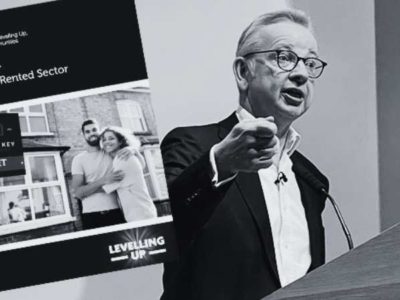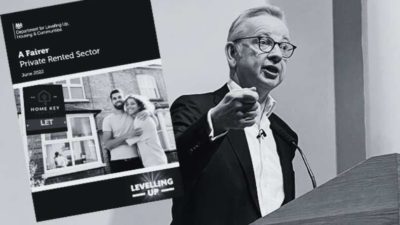The ONS has released its latest new housing purchase affordability data today, showing that affordability ratios in England are worse than at any point since the series began in 1999.
In the financial year ending 31 March 2021, the average home sold in England cost the equivalent of 8.7 times the average annual disposable household income, while in Wales the ratio was 6.0, and in Scotland it was 5.5.
While purchase affordability ratios for the average home are below their peaks in Wales (2007) and Scotland (2008), affordability ratios in England are worse than at any point since the series began in 1999.
Across English regions, an average-priced home in the North East cost the equivalent of almost 12 years of income for a low-income household (10th percentile) compared with 40 years in London.
In the most affordable English region, the North East, low-price homes (10th percentile) are available at around five times a 10th percentile or higher disposable household income.
In London, low-priced homes (10th percentile) are available at five times an 80th percentile or higher disposable household income.
Commenting on the data, Brean Horne at NerdWallet, said:
“Years of uninterrupted house price growth has contributed to the current housing affordability crisis.
In England, today’s buyers face paying 9.1 times their annual workplace-based earnings to purchase a home compared to 7.9 times in 2020.
The news comes as a serious financial blow for prospective buyers amid rising inflation and as the cost of living escalates.
Understandably, many prospective buyers will be monitoring house prices carefully in the hopes of a market cooldown.
However it’s important to remain proactive and prepare for the opportunity to purchase a property when it arises.
Buyers will strengthen their position by taking the time to evaluate their finances. This includes looking at their income, expenses, personal savings, credit history and outstanding debts to get a clear idea of their budget and the types of property they can afford.
Additionally, prospective homeowners should carefully consider any mortgage offers and shop around for the best rates and loan-to-value options.
Using online tools like comparison websites can be beneficial and speed up the process.
Whether rising interest rates and inflation will reign in a market that has seen remarkable growth over the last two years remains to be seen.
Yet, it is unlikely to reverse years of steep price jumps that have dented the hopes of first-time buyers.
Buyers who do their research and prepare now will put themselves in a better position to purchase property when the time is right for them.”
James Forrester, Managing Director of Barrows and Forrester, commented:
“The Government has a great deal to answer for when it comes to the plight of today’s homebuyer and the blame can’t be solely placed at the door of one mop headed buffoon.
For years, they’ve insisted on fuelling buyer demand while failing to address the severe reality of the housing crisis by actually building more homes and this has pushed house prices to record highs.
As a result, the initial cost of a mortgage deposit has also spiralled and now acts as a huge financial barrier, preventing many from realising their dream of homeownership.”
Managing Director of HBB Solutions, Chris Hodgkinson, commented:
“The cost of homeownership is severely out of kilter with the reality facing many homebuyers when it comes to the money they earn, the amount they are able to save and the sums required to purchase a home.
This has caused many have borrowed beyond their means while mortgage rates have remained favourable, simply to get a foot on the ladder.
But with this cost of borrowing now starting to climb, we can expect to see those that have over committed find themselves in financial turmoil as they struggle to cover this increased cost on a below par level of income.”
CEO of Octane Capital, Jonathan Samuels, commented:
“Despite the nation’s homebuyers enjoying a prolonged period of affordability with respect to mortgage rates and their monthly repayments, the high cost of securing a mortgage alone has prevented many from climbing the ladder.
This is, of course, due to the fact that property values have increased considerably, but also as a result of comparably stagnant wage growth, not to mention the high cost of renting that prevents many from saving a substantial mortgage deposit.”
Director of Benham and Reeves, Marc von Grundherr, commented:
“Climbing the ladder is an incredibly tough task in today’s market, where only those with the financial collateral of an existing property can comfortably negotiate the cost of a property purchase.
It’s not just an insufficient level of wage growth and the high cost of a deposit that is pricing many out of the market, there’s also the additional costs such as stamp duty and solicitors fees to consider.
When combined, the financial hurdle to securing a foot on the ladder is quite staggering and so it’s no wonder that we’re seeing a move towards long-term renting as a lifestyle choice, not just a necessity.”






















Comments